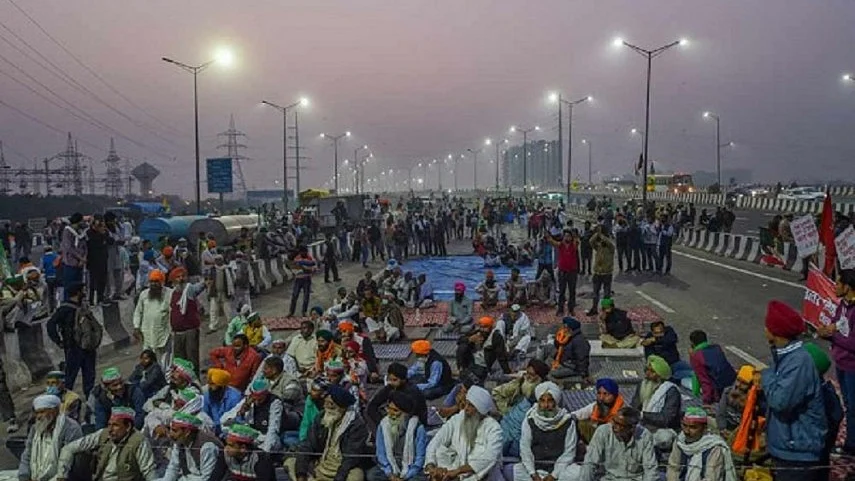Why Indian farmers’ movement is getting global attention
The power of such a movement is that it can reach out to a wide range of social groups and organisations, and set the stage for transformations that look both outward and inward

The Indian government, led by Prime Minister Narendra Modi and his far-right Bharatiya Janata Party (BJP), does not take kindly to criticism, whether it comes from the citizens they are meant to serve, from the media, from opposition parties, or even from global celebrities.
Sometimes this brittleness borders on the ridiculous, as when the Ministry of External Affairs took it upon itself this week to issue a press release denouncing the “sensationalist comments” about the ongoing farmers’ protests in India made by foreign “celebrities and others” — referring, it seems, largely to Rihanna. On Tuesday, the pop star tweeted, “Why aren’t we talking about this?! #FarmersProtest” and linked to a CNN story about the massive, ongoing demonstrations.
But more often, the government’s response to dissent takes more serious, repressive forms — as in the recent filing of sedition charges against senior journalists writing about the farmers’ protests, the arrest of a young reporter investigating BJP involvement in violent attacks against protesters, and the filing of criminal cases against protest leaders.
In recent days, the government has shut down internet service in areas where protesters are gathered, convinced Twitter to temporarily suspend the accounts of many protest supporters, and started constructing ominous nail-and-concrete barricades to keep demonstrators out of Delhi, the national capital.
Rihanna is right about the farmers’ protests in India — why aren’t we talking about them more, especially with the Indian government tightening its repressive grip?
The protests are not new. They began in a more inchoate form last September, when the government pushed through Indian parliament three contentious agriculture bills without even counting the votes. The trio of legislation loosens government regulations on agriculture and makes it easier for corporate actors to enter the sector.
The measures come at a time of great crisis for agriculture in India, as decades of neoliberal policy have decimated a sector that remains the biggest employer in the country. The farmer suicide crisis, driven by crushing indebtedness, is just one indication of the severity of agricultural distress. Many farmers see the laws as a potential death blow.
Ever since their passage, protests have erupted around the country, especially in the northern states of Punjab, Haryana, Uttar Pradesh and Uttarakhand where many farmers’ livelihoods are linked to the government-regulated markets that the bills seek to weaken.
The current iteration of the protests began in late November, when farmers’ groups, dismayed by the Modi government’s lack of response to their concerns, decided to march to Delhi where farmers were met with a heavy police presence. The farmers’ movement, on the other hand, made it clear from the beginning that they would not leave the border until the three agricultural laws were repealed.
The result of this resolve has been a series of remarkable encampments, which have blossomed into mini-cities full of lively cultural, political, and social activity. Large-scale kitchens have been set up, as have libraries, stages for speeches and performances, and medical and even dental clinics.
Despite the outpouring of support from farmers and progressive groups, the farmers have had to deal with a government that has little patience for its main demand: nixing the farm laws.
Modi’s administration denounced the protesters as “anti-national” and accused them of being “infiltrated” by outside groups (either far-left or religious extremist). This time around, the BJP latched on to the fact that many protesters are Sikh and attempted to paint the protest as driven by “Khalistanis” or those supporting a separate Sikh state.
It didn’t work. With the encampments intact and support for the protests still high, the government reluctantly began negotiations with representatives from the farmers’ unions. Yet despite offering various concessions, the government refused to budge on repealing the neoliberal farm laws.
The arrests, sedition charges, barricade construction, and Internet blackouts of recent days show that the government is not backing down. Still, the movement has given a glimmer of hope that Modi’s neoliberal, Hindu nationalist government may not be as invincible as it seemed just months ago. Their resolve has been remarkable.
Remarkably, the movement has weathered the intense backlash in the aftermath of January 26 violence by a split group of farmers who digressed from the set route and ended up reaching the Red Fort.
This is not to romanticize the movement, or to claim that it is free of problems. Various reports have noted the movement’s caste divides, which largely map onto divides between land owners and landless labourers. And the farmers’ union led by Tikait has unsavoury connections to anti-Muslim violence in Uttar Pradesh.
Nevertheless, the upheaval has provided an occasion, not just for a fight against an external enemy — the government’s neoliberal farm laws — but also an internal reckoning. Farmers’ unions in Uttar Pradesh are beginning to face up to their role in sectarian violence, and unions in Punjab are actively confronting the deep scars of caste oppression in the agrarian world.
None of this means that deep divisions have been overcome, or that historical and present-day oppressions should be obscured in the name of a too-hasty unity. But the great power of such a movement is that — rather than demanding ideological purity at the outset — it can reach out to a wide range of social groups and organizations, and see the struggle itself as the stage for transformations that look both outward and inward.
If the farmers’ movement, in the face of rising state repression, can continue prying open the space for such transformations, it has the potential to remake Indian politics.
Views expressed are personal
(IPA service)
Follow us on: Facebook, Twitter, Google News, Instagram
Join our official telegram channel (@nationalherald) and stay updated with the latest headlines
